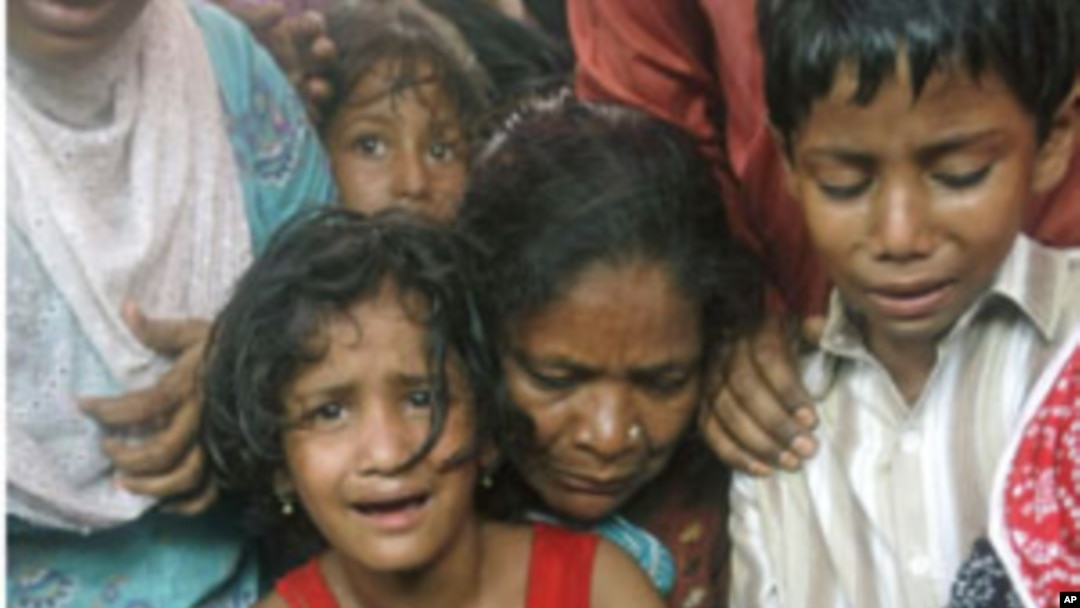Authorities in Pakistan have ordered security forces to shoot on sight anyone engaged in violence in the country’s largest city of Karachi, where up to 85 people have died in a surge of ethnic and political violence since Monday. The violence is the latest indication of a deadly power struggle between the city's main political factions.
About 1,000 additional police and paramilitary forces are now deployed in Karachi with new orders to shoot any armed "miscreants" they encounter.
Businesses are closed and the streets are deserted. There reports of continuing clashes in parts of the southern port city.
Interior Minister Rehman Malik told reporters that dozens of suspects have been detained in connection with a series of targeted killings since Monday. He told reporters in Karachi that political activists are among those killed but most of the victims are ordinary citizens, apparently caught in the cross-fire.
Police say the killings are part of clashes between political groups in Sindh province, including the Muttahida Qaumi Movement and its rival, the Awami National Party (ANP).
The MQM largely represents the Urdu-speaking community, and until last month was part of the ruling coalition in Sindh. The ANP represents ethnic Pashtuns. Both those groups and the ruling Pakistan People's Party are believed to have links to criminal gangs in Karachi.
The capital of Sindh generates 70 percent of the country's revenue. Many in Pakistan believe the ongoing violence in Karachi stems from attempts by the major political parties to increase their influence in the country's commercial hub.
"I believe it is really the political battle that they are fighting like a gang war and the ultimate victims of course are ordinary citizens of Karachi," said Zohra Yusuf, the head of the country’s leading independent Human Rights Commission of Pakistan (HRCP). "And the government and the law enforcement agencies seem quite ineffective or helpless. It is extremely disturbing we really don’t know where the situation is leading to.”
The rights commission says that at least 600 people have died in political violence in Karachi so far this year.
Those attacks, along with ethnic and sectarian violence left thousands of people dead in Karachi in the early 1990s, prompting the government to launch a military operation.
But some observers like Pakistan’s former Interior Minister Moeenuddin Haider say the military may not be able to intervene this time because security forces are deeply engaged in fighting the Pakistani Taliban and al-Qaeda terrorists in the country’s northwest.
“I think the army has its hands full at this point of time," Haider said. "And so far the police and the Rangers [paramilitary force] who can restore law and order situation if they are given clear cut direction against anybody who is breaking law and not get involved politically.”
Pakistani leaders were scrambling Friday to respond to the crisis in Karachi, as they met with top officials to discuss ways to respond to the violence.
In Islamabad, Prime Minister Yousuf Raza Gilani appealed for peace, stressing the importance of the city to Pakistan’s economic stability. He called for the country to unite against violence in Karachi, saying peace in the city will strengthen Pakistan.
U.S. officials are also concerned. U.S. Ambassador to Pakistan, Cameron Munter condemned the violence on Friday, and all parties to seek a peaceful resolution of their differences.
Forces Told 'Shoot on Sight' to End Violence in Pakistan's Karachi

Pakistani family members mourn the death of a man who was shot dead in Karachi, Pakistan, July 8, 2011

